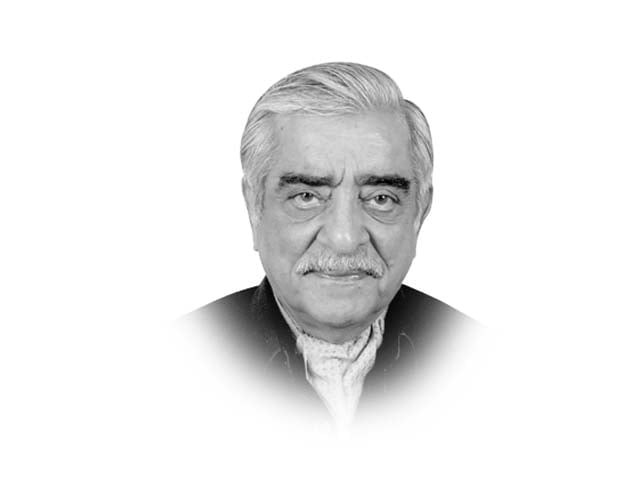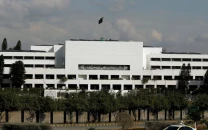Afghanistan — as the withdrawal gets underway
For Afghans, Pakistanis are held responsible for their problems, damaging ties between the two neighbours.

Afghan President Hamid Karzai has wisely decided that he will not try to retaliate against Pakistan, presumably because he is looking to Pakistan to help facilitate the reconciliation with the Taliban that he is pursuing. But for Pakistan, the current furore and the strength of anti-Pakistan sentiment should offer a lesson. We may like to believe that we have made many sacrifices for our Afghan brethren and have ungrudgingly offered them shelter in Pakistan despite the strain this placed on our resources. For Afghans, however, the Pakistanis are to be held responsible for many of their problems and these military actions were just the latest manifestation of the callous Pakistani attitude towards the Afghans and Afghanistan.
Within Afghanistan, the decision by the commission that President Karzai set up to disqualify some 63 members of the Afghan parliament has provoked a political storm with the sitting members, threatening action against the judiciary and calling upon the international community to force Karzai to annul the decision of the tribunal. Most significantly, the political crisis has hastened what was in my view inevitable — the formation of an opposition party consisting of former warlords of the Northern Alliance. I call it inevitable because the unease Karzai’s reconciliation initiative had created among the ethnic minorities, and which had hitherto been articulated by such Tajik stalwarts as Abdullah Abdullah and Amrullah Saleh, had to provoke further reaction. What this development means is that the minority communities will, unless there is strong international pressure, oppose tooth and nail any reconciliation that gives the Taliban the sort of share in power that they will feel entitled to. It is, of course, well known that General Dostum, a recognised leader of the Uzbeks; Mohaqqiq, leader of a faction of the Hazaras; and Zia Masood, representative of the Panjshiri Tajiks, have been arming their followers and in a sense preparing for the conflict that they believe will be necessary to protect the privileged position they acquired in the Afghan political set up after the Taliban had been vanquished. Proceeding with reconciliation is going to require a deft touch if this denouement is to be avoided.
On another front, the economic crisis in Afghanistan is deepening. Unlike Pakistan, where a bumper wheat harvest is expected, it is estimated that in place of the 3.2 million tons of wheat that Afghanistan produced last year, the crop this year is going to be only 2.3 million tons. To make matters worse, the World Food Programme has let it be known that because of shortage of funds it will have to cut the programme of feeding some 7 million Afghans to less than half that number.
Concurrently, more details of the Kabul Bank problem have come to light and suggest that only some $163 million of the more than $900 million in bad loans made by the bank’s director to themselves or to their nominees are going to be recovered. President Karzai seems reluctant to persuade against the bank’s officials and directors. One of them is his brother, Mahmud Karzai, while another is the brother of Afghan Vice President Mohammad Qasim Fahim. Latest accusations from parliament members say that President Karzai spent $70 million of the bank’s money to finance his election campaign. Whatever the truth behind these allegations, the IMF has made it clear that it will not disburse the $70 million in loans that it had promised until the government takes concrete measures to recover the bad loans and punish those responsible for making them. Without an IMF endorsement, other donor agencies are also withholding funding and Afghanistan may shortly find itself in dire straits, unable to meet its financial obligations.
The American budgeted development assistance for Afghanistan has declined, and may fall even further, as US withdrawal gathers pace. More importantly, as American and Nato troops withdraw, there will be massive displacement of the Afghans to whom employment had been provided by them. How, in an economy where little economic activity is being generated, will alternative employment be found for these Afghans whose salaries are well above those paid to others working in the Afghan government or in the private sector?
There is a real fear that given the political uncertainty and the economic difficulties that are now bound to come, the Afghans will, as in the past, vote with their feet and seek shelter in Pakistan. Can our overburdened economy stand the strain? If not, what can we do about it beyond appealing to the international community to share the burden?
Published in The Express Tribune, July 8th, 2011.



















COMMENTS
Comments are moderated and generally will be posted if they are on-topic and not abusive.
For more information, please see our Comments FAQ